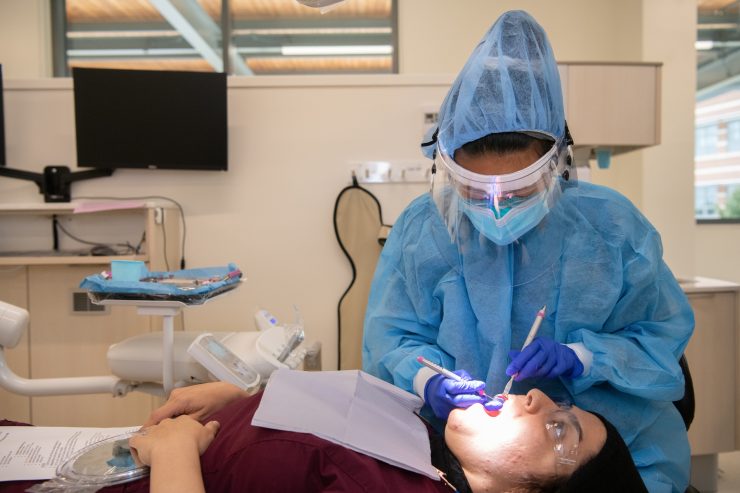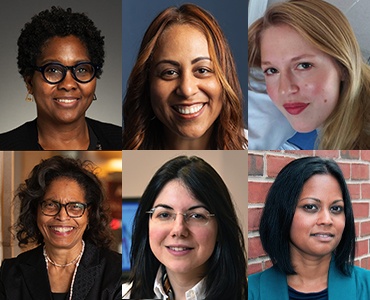Louis DePaola, DDS ’75, MS ’84, associate dean of clinical affairs at the University of Maryland School of Dentistry (UMSOD) and a professor in its Department of Oncology and Diagnostic Services, was tapped in late 2017 with a personal invitation for an innovative project that was being proposed by Springer Publishing — a textbook titled “Infection Control in the Dental Office — A Global Perspective.”
He saw the enormous potential — and value — the resource-rich textbook could have for the field, even before the COVID-19 pandemic would affect the world a few years later.

“But I personally didn’t have the time to write each chapter,” notes DePaola, who in addition to his role as a diplomate of the American Board of Oral Medicine and the American College of Dentists serves as the director for dental training for the Mid-Atlantic AIDS Education and Training Center and as a dental and infection control consultant for the Commonwealth of Pennsylvania and the Maryland Division of Correction.
DePaola returned to Springer with a counterproposal: He’d oversee the publication with content written instead by 18 fellow UMSOD faculty members and with co-editing duties shared with Leslie Grant, DDS ’86, MSPA, a former student, professional colleague, and current member of the UMSOD Board of Visitors.
The result is the ultimate team effort: a 15-chapter book in which each contributor co-wrote two chapters and was featured both as a primary author and secondary author. The 216-page textbook, DePaola says, is comprehensive and cutting edge in that there is nothing comparable in the field that takes such a global perspective on infection control.
The research for the collaborative endeavor was identifying the similarities and differences — and what worked best — in infection control standards and guidelines around the world, not just in the United States, but also in Britain and the UK, Brazil, Australia, Canada, Greece, South Africa, India, Japan, and Nigeria.

The textbook, published in 2020, was written before the COVID-19 pandemic, and Springer has since broached the prospect of a revised edition with new chapters that will help practitioners internationally continue to deliver the best of care in the sometimes rapidly changing world of health care.
“All the principles in the book are relevant, especially in light of COVID-19, the risks of the pandemic, and the reality that we continue to deliver high-quality dental care by using best practices outlined in the book,” DePaola says.
The book includes chapters that focus on Dental Care During Catastrophic Events, for example, and Respiratory Hygiene and Cough Etiquette, along with topics like surface disinfection, cleaning and sterilization of dental instruments, and infectious diseases of concern to dental practitioners including blood-borne pathogens, bacterial infections, and other viral infections.
“It was a great opportunity for UMSOD to have a more hands-on role in helping to develop policies and procedures that make oral health care around the world as safe as possible. It has been an honor for all who participated. And as editors,” DePaola adds, “we had it pretty easy.”
Grant, a former president of the National Dental Association, concurs, saying, “The almost two-year-long process was detailed and methodical. The contributing authors were thorough, enthusiastic, and full of expertise. Our aim to provide an excellent reference book is so especially relevant and timely given our current circumstances with the worldwide COVID-19 pandemic.”




